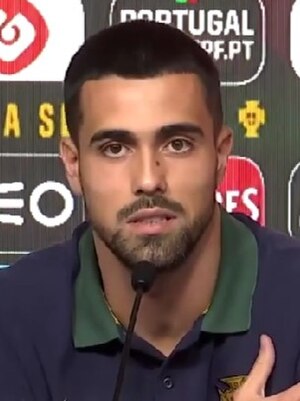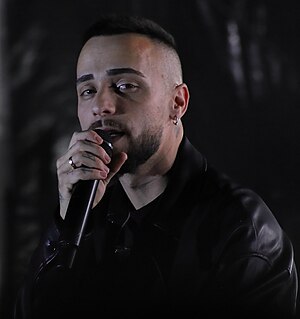Discover Your Roots
SIGN UPDiscover Your Roots
SIGN UPDiogo is a male given name of Portuguese origin, meaning "Form of Diego." The name is associated with individuals of Portuguese descent and holds historical significance. It may refer to notable figures such as Diogo Antunes de Oliveira, a Brazilian footballer, and Diogo, Constable of Portugal, a Portuguese royal prince. Additionally, the name has been linked to geographic locations like Diogo Island in the Philippines. Diogo, though primarily a male name, has a rich history and has been adopted by individuals in various countries. Its use is not limited to one specific region, making it a name with global appeal.

Diogo Meireles da Costa, born on 19 September 1999, is a prominent Portuguese professional footballer known for his role as the captain of Primeira Liga club Porto and as a goalkeeper for the Portugal national team. Costa's journey in football began in Porto's youth system, where he achieved the UEFA Youth League victory in 2019 and was subsequently promoted to the first team in 2019, contributing to a domestic double of the Primeira Liga and the Taça de Portugal in his debut season. His outstanding performance led to his inclusion in the Primeira Liga Team of the Year in 2022 and 2023. Costa has also represented Portugal at various youth levels and made his senior international debut in 2021, participating in major events such as the 2022 FIFA World Cup and UEFA Euro 2024. His exceptional goalkeeping skills and contributions have earned him recognition and accolades both domestically and internationally. Costa's dedication and talent continue to make a significant impact in the world of football, solidifying his status as a distinguished figure in the sport.

Diogo Piçarra, born on October 19, 1990, is a renowned Portuguese singer who rose to fame after winning the fifth season of the Portuguese version of Pop Idol in 2012. Hailing from Faro, he formed the band "Fora da Bóia" at the age of 17. Despite initial setbacks, including unsuccessful attempts on music TV contests, his perseverance paid off when he clinched the coveted title on his third attempt at Ídolos. Piçarra's debut album "Espelho" not only soared to the top of the Portuguese music charts but also showcased his immense talent. His second album, "do=s," released in March 2017, featured collaborations with esteemed artists, further solidifying his position in the music industry. Notably, Piçarra's participation in Festival da Canção 2018, where he composed and performed "Canção do Fim," marked an important milestone in his career. In addition to his musical pursuits, Piçarra has also ventured into coaching, serving as a coach on both The Voice Portugal and the kids' edition of the show. With his impressive achievements and undeniable talent, Diogo Piçarra continues to captivate audiences with his soulful music and unwavering dedication to his craft.

Dom Diogo de Azevedo Roiz, also known as Diogo Rodrigues, was a Portuguese explorer of the Indian Ocean during the 16th century. He sailed under the command of Dom Pedro Mascarenhas and made significant contributions to the Portuguese empire's history in the subcontinent. Notably, Rodrigues is credited with the discovery of Rodrigues Island, as well as other islands in the Indian Ocean, and played a crucial role in the defense and construction of forts in Goa and Salsette. As the governor of Salsette and landlord of Colva, he left a lasting legacy through his artistic contributions and ownership of the beach in Goa. Additionally, Rodrigues served as the Captain of the Fortress of Rachol, where he played a key role in the construction of the first church in the area. His remarkable explorations and contributions to the Portuguese empire solidified his place in history, and he passed away in 1577, leaving behind a significant legacy in the Indian Ocean exploration and the development of Portuguese territories.

Diogo Fernandes (died before 1 December 928), also known as Diego Fernández, was a count in the Kingdom of León and is believed to be the ancestor of many influential noble families in the County of Portugal and the Kingdom of León during the 10th and 11th centuries. Little is documented about his early life, but it is known that he arrived in the county of Portugal towards the end of the 9th century. Diogo's first appearance in medieval charters was in 909 when he confirmed a donation made by King Alfonso III, and he continued to be a prominent figure in the regal court during the reigns of King Ordoño II of León and King Fruela II. He was married to Onecca, and their children played significant roles in the noble lineage of the time. Onecca, believed to have been a member of the royal house of Pamplona, made a notable donation in December 928 to the Monastery of Lorvão, along with her four children. Diogo's son, Jimeno Díaz, was a prominent count and married Adosinda Gutiérrez, with whom he had issue. Diogo Fernandes has left a lasting legacy through his descendants, who held influential positions in medieval Iberia.

Diogo de Melo de Castro, a prominent historical figure, served as the 11th and 13th Governor of Portuguese Ceylon during the early 17th century. His first appointment came in 1633 under the reign of Philip III of Portugal, and he held the position until 1635. Subsequently, he was reappointed in 1636 and served until 1638. Tragically, de Melo met his demise during the Battle of Gannoruwa. His tenure as Governor and his ultimate sacrifice in battle have left a lasting mark on the history of Portuguese Ceylon.
All images displayed on this page are sourced from Wikipedia or Wikimedia Commons.We use these images under their respective Creative Commons or public domain licenses. Wherever applicable, author attributions and license information are provided. If you believe an image is used incorrectly or outside its license terms, please contact us so that we can review and correct the issue.